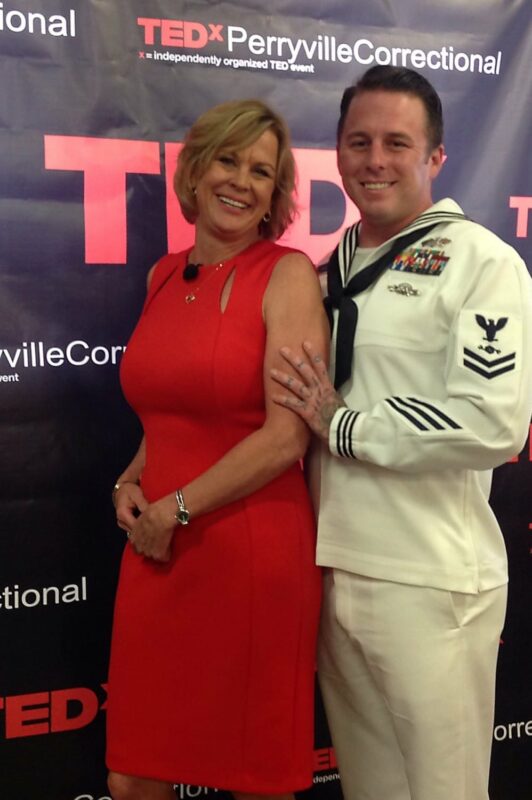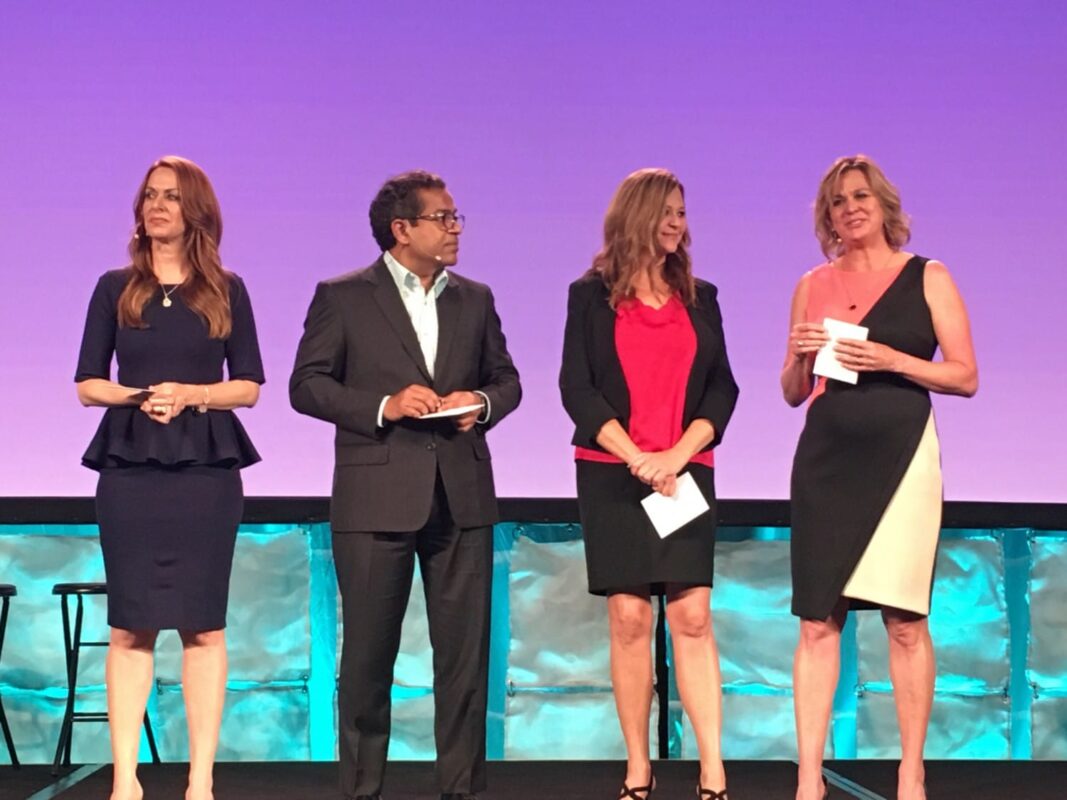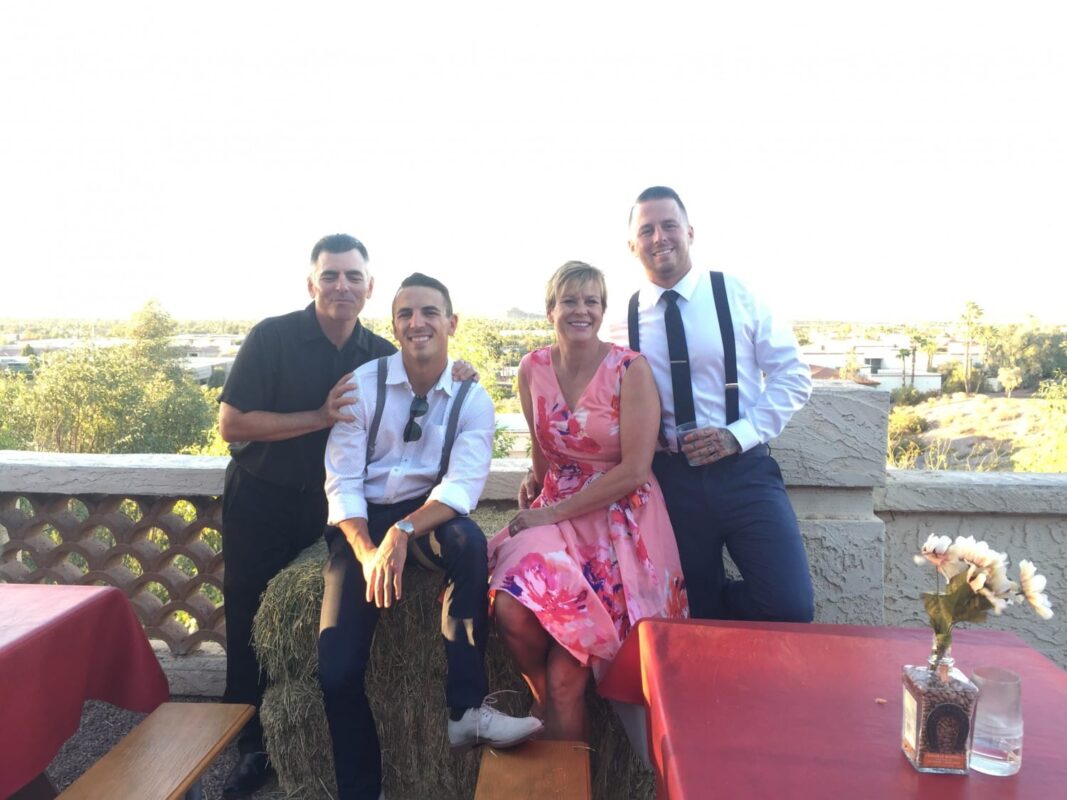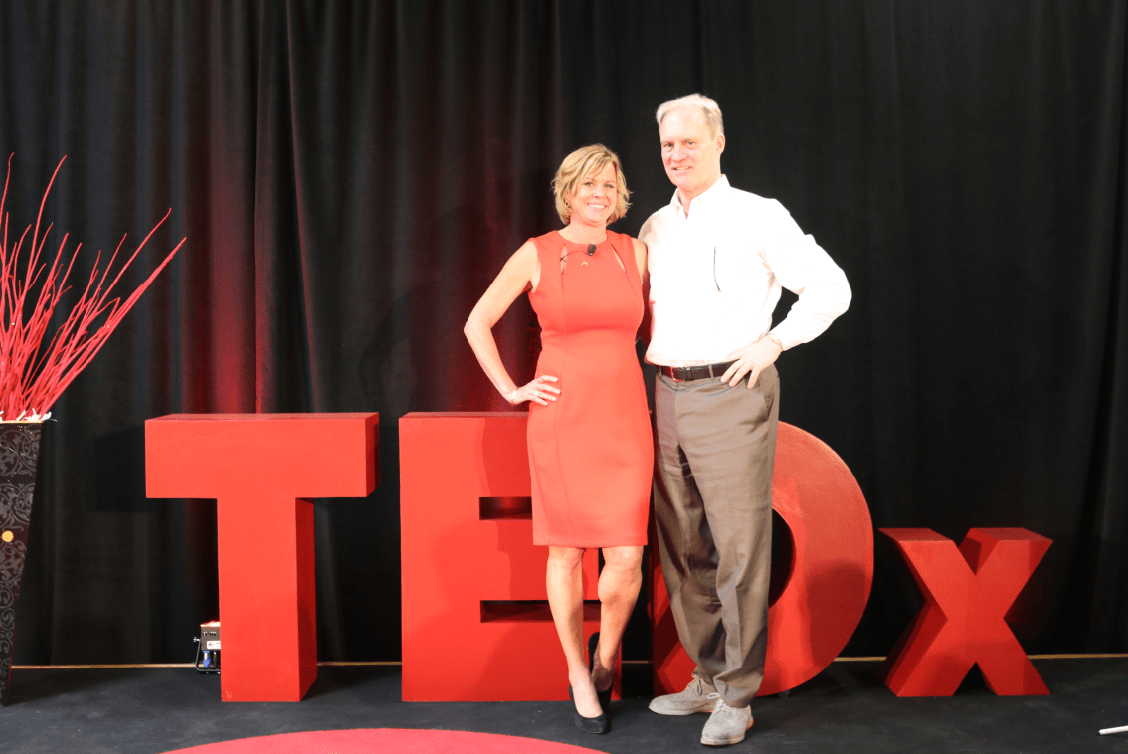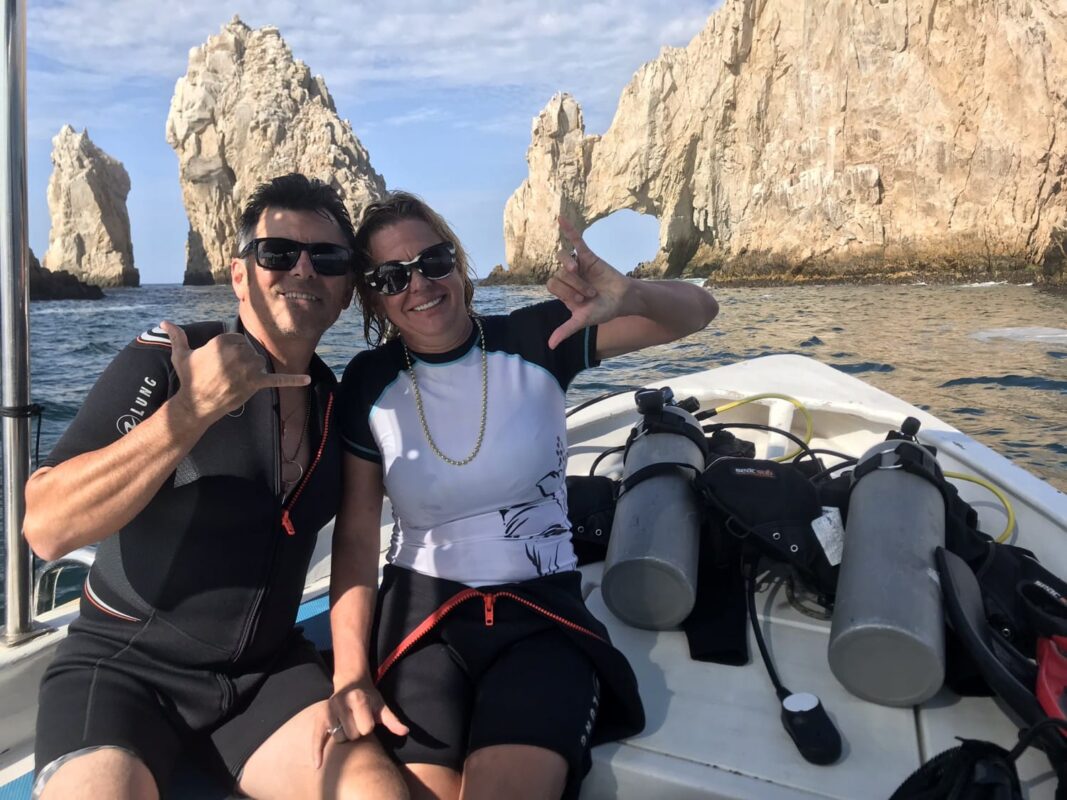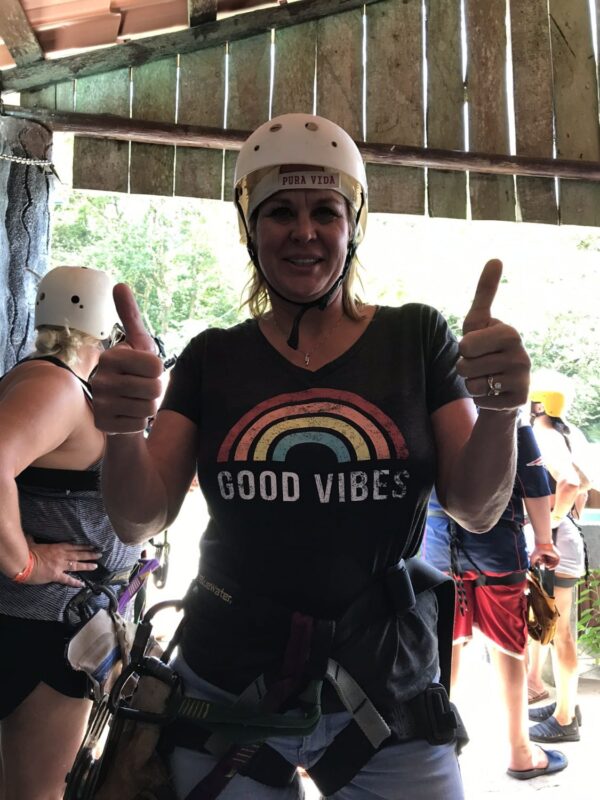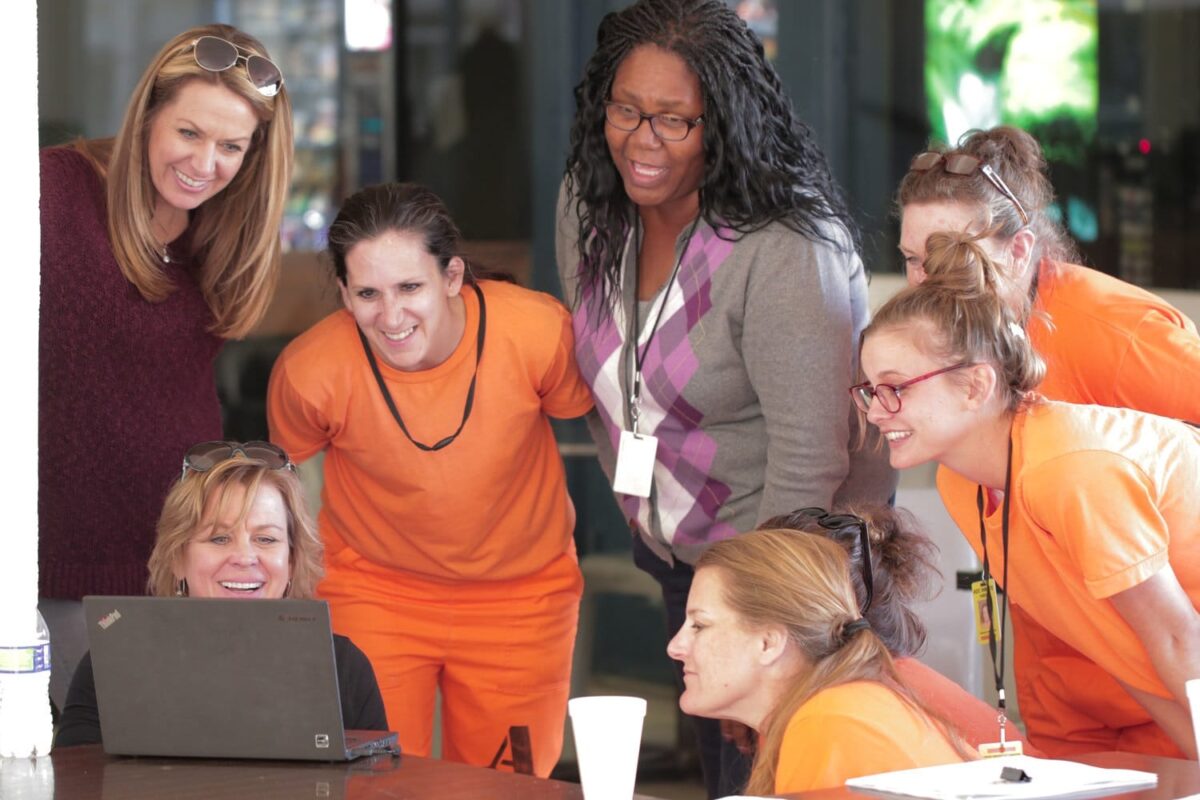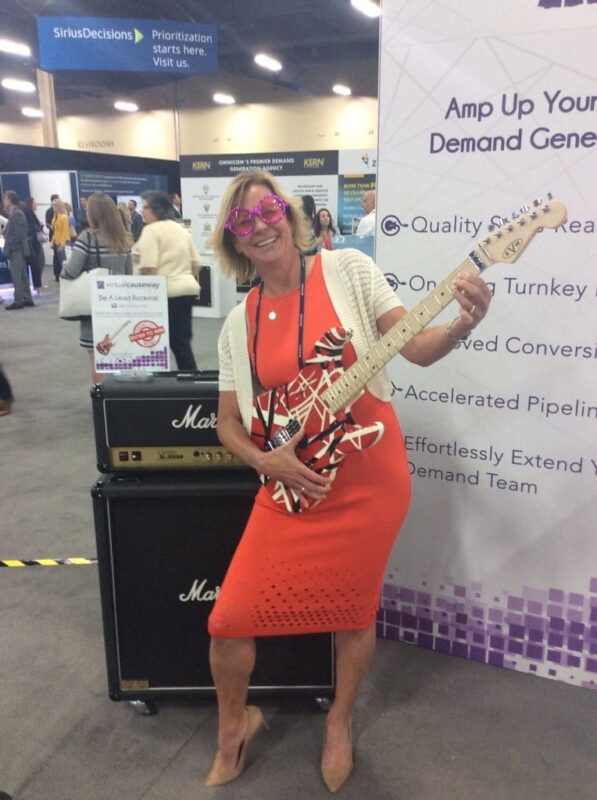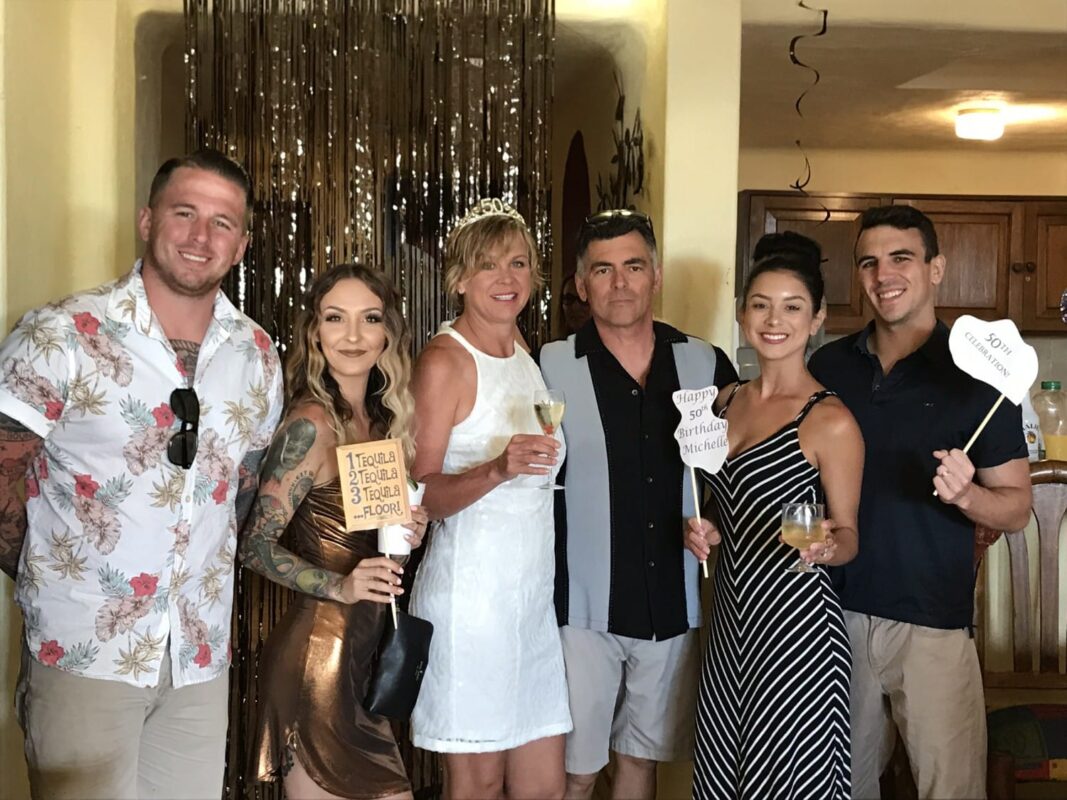Meet Michelle Cirocco, a woman that overcame the adversity of being in jail and became the Chief Responsibility Officer at Televerde, a company that operates nine call centers globally, four of which are staffed entirely by women incarcerated at the Department of Corrections at Perryville, now she gives opportunities, tools, resources, and encouragement to those who are in prison through her work at Televerde.
Who is Michelle Cirocco? Define yourself
This seems like such a simple question, but it isn’t. It’s very easy to define ourselves by our careers, but we are so much more than that. I think women generally have a difficult time defining who we are outside of our careers and our children. It is very easy to define ourselves as a mother, a wife, an executive, etc. But the challenge comes when we look beyond these roles. We give so much time to everything else that we often lose sight of who we are inside.
I am all of these things: a mother, a wife, a daughter, an executive at a sales and marketing company, but I am also a convicted felon. A woman who through her own actions, made a huge mess of her life, then faced the consequences head-on. It is through this experience that I define who I am today.
I am a woman who is capable of anything I set my mind to. I am a highly motivated learner who is driven to achieve my “next big thing,” no matter what it is. I am passionate about learning, creating new experiences, and enabling others to recognize their value and seize opportunities to achieve more than they ever thought possible.
How were you as a kid?
I was a typical small-town girl who did small town girl things: Sunday School, Girl Scouts, summer camp until the 6th grade when we moved to Phoenix, Arizona. When I arrived in Phoenix, a big city in comparison to where I came from, I become painfully aware of my awkwardness. I was tall, skinny, couldn’t sing, couldn’t dance, couldn’t play ball and had absolutely no sense of style. In a world of mean girls, I was a prime target. So, I quickly made friends with all the other misfits and we created our own “in-crowd.”
"I am a woman who is capable of anything I set mind to. I am highly motivated and driven to achieve my “next big thing,” no matter what it is. I am passionate about learning, new experiences, and enabling others to recognize their value and seize the opportunity to achieve more than they ever thought possible"
You have a bachelor’s degree in business marketing from the University of Phoenix and an MBA from Arizona State University, why did you study that?
My education did not follow a traditional path. I did not graduate from high school, but instead chose to get my GED and go to community college. Without any direction or clear vision of what I wanted to be when I grew up, I floundered in school and did not follow through. While I was incarcerated, one of the first goals I set was to complete my two-year degree. I enrolled in correspondence courses and, in April 2002, I received my associate degree in Natural Science from Ohio University. A few years after my release, as my sales career was progressing, I recognized the impact my lack of experience and education had on my ability to grow and truly feel accepted by my peers. I realized that if I wanted a seat at the table, then I was going to have to earn it through advanced education. Since, I sold marketing services to marketing people, it just seemed like the most logical thing to study. The decision to further my education and pursue a master’s degree did not come easily. I still had children at home and I was realizing increasing responsibility in my career. However, I had developed a passion for learning and became highly motivated to prove that I could be successful. I wanted more out of my career. I wanted to make it to the c-suite and I believed that advanced education would be the path that took me there. I will say it was challenging, probably one of the hardest things I’ve ever done in my life, but it was worth it. I learned. I grew. I developed real business acumen and relationships that have supported me throughout my career.
For the people who don't know what is Televerde, tell us what the company does and the impact on society.
Televerde helps organizations around the world generate demand, accelerate the sales pipeline and grow their business. Since the company began in 1994, Televerde has generated $8 billion in revenue for clients like SAP, Microsoft, Adobe-Marketo, and Pulse Secure. Televerde operates nine call centers globally, four of which are staffed entirely by women incarcerated at the Department of Corrections at Perryville and one at the Department of Correction at Rockville (Indiana). Today, 70% of its 600+ global workforce are women in prison.
"All of us have made mistakes. And very often you may find that someone is in jail for the same mistake you made – the difference is that person was caught. We need to exercise more empathy and recognize what the cost of incarceration is causing this country and our communities"
Sometimes referred to as a “mini MBA,” we teach agents how to be consultative business partners for clients. We use a combination of in-class, online and study group-based learning to give women multiple avenues to develop and hone their skills. We leverage real-time coaching and review 100% of deliverables to clients to ensure conversations are of the highest caliber.
All agents are trained in the most cutting-edge technology on the market, as well as the hard and soft skills needed to close deals, communicate with c-suite executives, and collaborate with Televerde clients’ sales and marketing teams.
We also offer certifications and advanced career opportunities in all Televerde departments including executive level positions as women progress in their lives and experience.
Whereas typical prison jobs can pay less than a dollar per hour, women employed by Televerde are paid a fair market hourly wage, receive regular pay increases and earn overtime (with some deductions made for restitution, child support and the cost of incarceration, if applicable, and a personal savings account to be used upon release. On average, women leave prison with a savings account of $20,000). Compensation also includes access to earn online certifications, college courses and other higher learning opportunities.
While initially trained for sales roles, advancement continues in departments like IT, marketing, finance, and HR, and many have gone on to management positions. At Televerde, there are people in every department and in every level of the organization who began their careers in prison. Customers like SAP have always hired Televerde-Perryville graduates.
When women graduate out of Perryville, they are eligible to apply for open positions at Televerde Corporate HQ in Phoenix through the company’s Careers website. They are paid the market value for the position into which they are hired. In 2018, the total number of formerly incarcerated women working at Televerde in Phoenix was 58 (about 40% of the company’s workforce at HQ), with an average annual base salary of $52,089.11 plus commission (if sales role), bonus (if applicable) and full benefits.
Over the past 25 years, 3,000 women have been through the Televerde program. While statewide rates of recidivism can be as high as 70%, for women of Televerde, its less than 10 percent.
At an average annual cost of approximately $24,000 to house an inmate, Televerde saves the state of Arizona and its taxpayers about $25 million annually by successfully keeping hundreds of women from returning to prison, thanks to the marketable business skills provided and jobs on the outside the company helps them secure following their release.
Add to this amount a difficult to calculate yet undeniably significant savings resulting from the women who are now able to financially support their families without depending on welfare and other government handouts. On the revenue side, the women who successfully reintegrate with society generate state and federal tax dollars on the incomes they receive, and on the goods and services they consume. More significantly though, Televerde’s prison-based workforce has generated an estimated $8 billion in net new sales revenue for our clients. This is revenue on which taxes are paid, on which business is expanded, and on which the U.S. economy is strengthened.
Our investment in the women doesn’t end upon release. The company offers continued support such as life skills training and access to higher education, job readiness and placement, and a network of mentors to tap into through our partnership with the Arouet Foundation. Launched by Televerde in 2011, the non-profit organization empowers women coming out of corrections through a 3-year transition program: release preparation, peer mentorship and leadership & impact. Arouet provides wrap-around social support and services to these women to help increase their success and avoid recidivism once they’re released. The type of support Arouet offers includes life skills training, budget management, savings and credit repair, parenting and family reintegration, conflict resolution, mental health and drug use counseling, access to higher education, job readiness and placement, and a network of mentors to tap into after they graduate Perryville. Since the Arouet Job Placement Program began in August 2018, 25 women have been placed in Televerde call centers, with a salary range of $25K - $40K, plus commission.
Can you describe what activities you do in the company and how have you contributed with your work in the growth of the company and improving inmate´s lives?
I always say I have the greatest job in the world. My job is simple: I get to travel the world speaking with business leaders, politicians/legislators, key influencers, et al about the power of second chance hiring using Televerde as a world-class example of a company committed to making the world better through a business model that provides education, training and opportunity to disempowered populations. I also identify and partner with like-minded organizations that share the same purpose-driven values and spirit as we do so we can extend our reach, have greater social and economic impact, and strengthen our position as a force for good in the world. I’ve been fully committed to Televerde’s work with disempowered communities for almost 20 years. I’ve seen first-hand the outcomes we can produce when we match our best-of-breed model with corporations, governments and other entities that want to change the norm. Most importantly, I’ve seen how people’s lives have been changed because this company invested in them and gave them a second chance. My goal is to help rapidly grow our company so we expand what we know is a proven methodology to different geographies and other groups who need support and opportunity. Our BHAG is to provide 10,000 life-changing opportunities over the next decade.
"Learn, work hard, set goals, ask for help--and this is important--don’t be afraid to say what you want. I am a firm believer in this idea from the Alchemist, “When you want something bad enough, the universe will conspire to make it happen.” And remember, you earn your seat at the table. You've not entitled it"
How was your experience organizing a TEDx event inside Perryville Correctional in Arizona? What was your purpose? Where this idea came from?
The TEDxPerryville event is hands down the single best day of my professional career! Planning, organizing, executing and witnessing the impact of that event is something that I will be forever grateful. In 2015, I attended the TEDWomen event in Monterrey, California with a colleague and we said, “Wow, wouldn’t it be great if we could share this with the women at Perryville.” At that point, it was just a thought, but in 2016, I attended another TEDWomen event where I met someone that was working on a way to bring the TED experience into prisons. That’s when it become a real idea that I shared with others, including Jack Hooker, my boss’s son and a recent graduate from Chapman College who challenged me to make it happen! Together we came up with a plan, built a team, and made it happen.
The purpose of the event was to challenge preconceived notions and unconscious biases about who and what exists inside our prison walls. Knowing that we’ve all experienced some sort of prejudice in our lives, we built the theme: Behind the Curtain: Brains, Beauty, Business and Beyond to look behind the curtain and see the good that comes from someone’s journey of transformation. At the event, we explored topics surrounding societal issues, education and family and shared the transformative stories and incredible journeys of the women of Perryville. You can see all the videos and artistic performances here: TEDxPerryville Playlist.
There is a very famous series in Netflix "Orange Is the New Black" that is about stories of women who are in U.S. jails. Do you think the situations shown in the TV program reflect reality? Yes or No and Why?
I’ve never watched the show. What I can tell you is that Hollywood sometimes depicts real-life experiences and events perfectly. When it comes to prison life, they get it wrong more often than not. Women, men and juveniles in prison are some of the most stigmatized populations in the world and that’s largely because of the stories we are shown and told. The truth is this: riots are rare, most take responsibility for the actions and behaviors that led them to prison, people generally keep to themselves, and all prisons aren’t corruptly run. It’s actually a rather boring place to be and the women with whom I work keep themselves busy doing artwork, reading, studying technology and solutions guides, etc. But who wants to watch a show like that?
In my experience, women in prison made a mistake and they are desperate for a chance to prove they’re better than the worst mistake they made on the worst day of their life. They simply need opportunity and the tools, resources and encouragement to tap into their human potential and soar.
"There is always a lesson to be learned, an experience to had, a relationship to be developed, no matter where we are or how we got there. It is with that mindset that I approach every situation in my career and in my life, so no, there is absolutely nothing about my past that I would change. I would not be where I am today, had it not been for everything that happened in the past"
What should the government and society do to help reduce the index of criminality?
Government needs to recognize that correction without rehabilitation has created a revolving prison door that is costing this country more than $180MM annually. To this end, we need to do several things;
- Restore fairness to criminal sentencing.
- Acknowledge and address the racial and ethnic disparities in our justice system.
- Transform our prisons into workforce development centers so when men and women are placed it prisons (which should be a last resort), they have opportunities to learn a trade and marketable business skills that translate into meaningful work on the outside.
- Invest in robust reentry programs that help people increase their success and avoid recidivism once they’re released. Wrap-around services should include life skills training, budget management, savings and credit repair, parenting and family reintegration, conflict resolution, mental health and drug use counseling, access to higher education, job readiness and placement, and a network of mentors to tap into after they leave prison.
This type of model empowers people with the skills and resources they need to successfully reenter society as leaders, caregivers, innovators and business professionals.
In terms of society, we need to recognize that people make mistakes. My advice to all of us is this: we don’t know every person’s back story so we should be less quick to cast judgement. All of us have made mistakes. And very often you may find that someone is in jail for the same mistake you made – the difference is that person was caught. We need to exercise more empathy and recognize what the cost of incarceration is causing this country and our communities.
Have you experimented the glass ceiling? if yes, what are the biggest challenges you have faced and how have you overcome them?
There were certainly times in my life where I felt like there was a glass ceiling, not necessarily because I’m a woman but because of my background. In hindsight, the ceiling wasn’t really there. It was just in my mind--a way to feel sorry for myself and blame others for my situation. Then, when I stopped feeling sorry for myself and honestly evaluated the situation, I could see what I need to do next to “earn” the seat at the next table. This isn’t to say that there aren’t systematic barriers that have been designed to keep women and men with criminal backgrounds from succeeding. They are in place still today and they are very effective. I was very fortunate when I was incarcerated to find a solution in Televerde.
The overwhelming majority of women in prison today do not have these opportunities. As a criminal justice reform advocate, I am working every day to remove these barriers, partnering with for-profit companies and non-profit organizations to raise awareness around the talent and potential that exists inside our prisons and to end outdated, non-inclusive hiring practices that prevent this qualified talent pool from finding career positions and meaningful work.
Michelle, you overcome adversity and now you have a high-level position in Televerde, you report to the CEO directly, even you were in the White House with Donald Trump, what´s the recipe of your success.
The recipe is simple: set goals, work hard, follow through and never give-up. Life is full of adversity and challenges, everyone has a story and that story is constantly changing. Sometimes good, sometimes not so good…or at least it may seem that way.
When things don’t go as planned, pick yourself up, pull yourself together, remember the vision and set back out on the journey. Learn, work hard, set goals, ask for help--and this is important--don’t be afraid to say what you want. I am firm believer in this idea from the Alchemist, “When you want something bad enough, the universe will conspire to make it happen.” And remember, you earn your seat at the table. You’re not entitled it.
"I don’t treat the people above me any differently than those sitting below or across from me. Because of this, I have people always willing to support me—roll up their sleeves and help me get what I need to be done"
If you could, would you change any steps you took in your career, and if so, what would you change?
I believe that everything happens for a reason, and we are always exactly where we are supposed to be at any given point in time. There is always a lesson to be learned, an experience to be had, a relationship to be developed, regardless of who we are or how we got there. It is with this mindset that I approach every situation in my career and in my life. So, no, there isn’t anything about my past that I would change. I would not be where I am today had it not been for everything that happened in my past.
What is one habit of yours that makes you more productive as an executive?
When you’ve had the experiences that I’ve have, you’re humbled. I have a very low ego and I’m able to connect very easily to anyone. I don’t treat the people above me any differently than those sitting below or across from me. Because of this, I have people always willing to support me—roll up their sleeves and hep me get what I need done.
What is the reality of your day-to-day?
I’m either on the phone networking, meeting with people with whom I've connected, preparing slides for upcoming speaking opportunities, or on a stage somewhere!
What do you like to do in your spare time?
I love to be poolside in my backyard. My husband and I recently installed an outdoor pizza oven made in Italy so we spend a lot of time out back enjoying wine, making pizza and swimming. The summer months in Arizona can be as high as 120 degrees so you’ll find me in water a lot. I also love to travel, golf, scuba, hike, bike…really anything outdoors.
Many authors say women can and must strive to have everything – a shining career, a blossoming family life and a perfectly balanced lifestyle all at once, others point out that– then women are placing unrealistic expectations on themselves, if they believe they can have it all, I do not know if you are married and if you have kids, so according to your experience, what do you think about these statements?
My husband and I have two grown sons and two daughters-in-law. They round out our very fulfilling life. I only know what has worked for me. My advice is for women to do what works best for them—whatever that looks like. And when they make the decision, they should be at peace with it and not judge women who make different choices. I’ve never once felt guilty or regretted my choice about being a working mom. That’s not to say I didn’t feel sad when I missed some events and firsts, even a few lasts, but when I couldn’t be there, my husband was and I was never more than a phone call away. My children knew this and they were always incredibly supportive, understanding and even encouraging.
If it applies: How are you as a wife as a mom?
I’m no pushover! I’m tough but fair and incredibly loving.
What are your plans for the future?
I am so focused on what I am doing today and having such a wonderful time doing it that it’s hard to define what’s next. However, I do have a few projects in the works, including opening transitional living centers for women coming home from prison, writing a book and hosting a second TEDx.
What tips can you give to young girls, who are afraid of following their dreams?
Seize them, don’t fear them. Toni Morrison passed recently and I read a quote from her that really resonated with me, “You are your best thing.” It’s true.
Who is the woman you admire the most and why?
My mother! My mother taught me to be me. She is the one who taught me that everything happens for a reason, and that whatever happens you are strong enough to overcome and be better as a result. She taught me that I could achieve anything with hard work and determination. These weren’t just words that she said; it’s the way she lived her life. She was the best example and I try to live my life in that same spirit.
Something else do you want to add or share with us?
Never forget about yourself, your personal life, your personal relationships. It’ easy to be a workaholic, to give all your time to your job, to your career. But it requires effort and discipline to live in the moment and to take care of yourself and to enjoy life.
Name: Michelle Cirocco
Sector: Sales & Marketing
Company: Televerde
Designation: Chief Social Responsibility Officer
Country: United States

